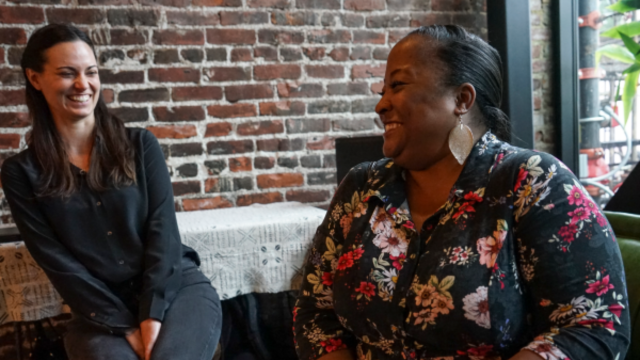by Daniel Kemmis, Philanthropy Northwest board member and Kettering Foundation fellow
Since its creation, Philanthropy Northwest’s public policy committee has monitored congressional, legislative and administrative proposals that could affect the philanthropic and nonprofit sector. In the process, the committee has developed steadily stronger working relationships with elected officials throughout the region.
At the same time, the committee has responded to a growing interest among Philanthropy Northwest members in strengthening their capacity to promote good public policy in the substantive arenas (from poverty to education to land use) covered by those members’ missions. That’s enough work to keep an excellent committee and staff plenty busy, but recently the committee decided to go a step further by launching an open-ended conversation about philanthropy’s role in nurturing and strengthening democracy itself.
The fact is that almost all philanthropists are contributing to democracy almost all the time, even though most of them don’t think of their daily work in those terms. But the problem-solving, getting-things-done skills that grantees acquire in the course of pursuing philanthropic and nonprofit missions are skills that spill over into the civic arena, contributing to the broader community’s capacity to solve a whole range of problems reaching well beyond any one grantor’s mission. This unintentional philanthropic contribution to democracy is truly immeasurable.
The increasing attention that philanthropists are paying to issues of diversity, inclusion and equality also advances the cause of democracy, but here again the democratic dimension of that work is easily overlooked. That dimension becomes more explicit when philanthropists intentionally promote civic engagement, as many do. And those grantors that specifically encourage their grantees’ involvement in public policy development and advocacy are obviously supporting core democratic practices.
What we’re wondering is how this abundance of philanthropic contributions to democracy might counterbalance the weakness and woundedness in so many of our governing institutions. It’s an open question, and one we invite you to help us pursue. A response to this blog post would be one good way to do that. If you’d like to dig a bit deeper into the topic, you might take a look at Philanthropy and the Renewal of Democracy, recently published by Philanthropy Northwest and the Kettering Foundation.
We had a lively session on this topic in May at the joint Philanthropy Northwest – GRANTMAKERS of Oregon and Southwest Washington conference in Oregon. We heard about some inspiring democracy-strengthening work by the Marguerite Casey Foundation and the Northwest Health Foundation, and we got a glimpse of some fascinating work in this arena just getting underway at the Hewlett Foundation. Here’s a clip of Hewlett president Larry Kramer discussing that work, and here is a more thorough presentation in Stanford Social Innovation Review. The conversation was just getting fully engaged when the bell rang for the next session, so we’ve invited session participants with more to say to weigh in here.
We had further confirmation of the timeliness of this topic when we received an invitation to guide a conversation on philanthropy and democracy at the annual PolicyWorks Institute sponsored by the Forum of Regional Grantmakers this summer. We’ll keep you posted on what we hear there. Meanwhile, please feel free to tell us what you’re thinking about this subject, what you’re doing in this arena, or what other resources or contacts you think we should all know about.


